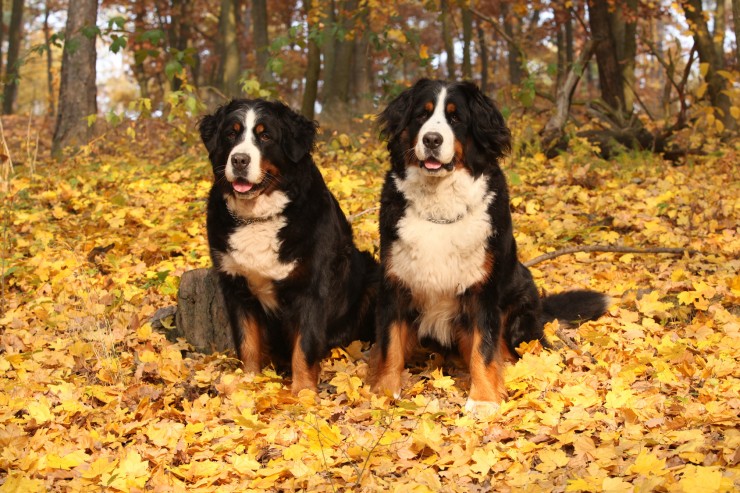

Our canine companions are very social creatures by nature and as such they learn many of their behaviours from each other whether they are good or bad. Puppies learn from their mothers and fathers if they are around and should a mum be a little quirky, the chances are she will pass this trait on to her pups simply because they copy her!
When two or more dogs live together in the same household, they will imitate each other and if one dog is a little more disruptive than any of the others they may just follow suit which is especially true of younger dogs. Sometimes just the mere presence of another dog in their environment can trigger a change in their character.
Young dogs are still learning the ropes and will look to an older canine companion for direction and guidance. If a dog is naughty by nature and spends time around another dog that misbehaves too, then it can become a real issue. However, with this said a dog can be quite selective when it comes to mimicking what other dogs do because they are clever and will only copy behaviours and actions that will have a positive outcome for them. A great example of this is when one dog sees a companion stealing food from a work surface and although normally very well behaved, the first dog could be tempted to follow suit and steal food too.
There is, however, one particular thing that dogs would be unlikely to copy which is when they see another dog licking and chewing themselves which happens if they have any hotspots. From a dog’s perspective, copying this type of behaviour would bring them no rewards therefore it is not “worthwhile”. The only real way of preventing a dog from copying bad behaviours seen in other dogs, is to use positive reinforcement and to distract them as much as possible in order to discourage them from doing so.
Most dogs instinctively guard what they perceive to be their territories which could be the house, garden or a fenced off area they regularly spend time in, although some dogs get very territorial when they are in the park too. If there are two dogs in the household one of them might be more territorial than the other, but the chances are that dog number two will bark and run to a gate when anyone approaches simply because they are copying the more territorial character. On their own, they may not even bother barking. It can be a dilemma because most owners like it when their dogs let them know when someone is at the gate or the door, but when this becomes an obsession that a second dog starts copying, it becomes a real issue.
A lot of dogs get a bit possessive about their food which is something that needs to be nipped in the bud. If you share your home with two or more dogs, it can make meal times a real nightmare because the more possessive dog will soon teach the others to act in the same way which could end up in a nasty fight. However, it's not just food that can trigger possessive behaviour because toys, a favourite dog bed or even a sofa can become the focal point of their possessive behaviours.
Any sort of disruptive behaviour like possessiveness can quickly be picked up and copied by other dogs in the household which is why it's important to prevent this type of behaviour from escalating. The best way of doing this is to reward a dog when they react passively when they would normally be a little too possessive about something. It would be a mistake to tell them off when they guard anything because a dog would interpret this as being told it is the right way for them to behave.
Dogs quickly learn to be anxious if they see one of their companions scared by anything. They too will react to a situation which means you could end up with two dogs being stressed out at the same time, making it much harder to cope with them both. If you own one dog and they are scared of their own shadow, you need to help them by boosting their confidence by gradually exposing them to the things they are scared of rather than let them try to sort things out themselves. You should never force a dog to do anything if they show any anxiety, but rather coax them gently at their own pace and hopefully their less anxious companion will help them overcome their fears rather than the other way round.
Dogs are very clever creatures and they quickly learn things from other dogs in a household, whether it’s a good behaviour or bad. However, they are quite selective at the sort of things they copy and will generally only imitate another dog if they think they are going to get something “good” out of it. If you share your home with one or two dogs and one of them is a little disruptive, the chances are your other dogs will follow suit especially if they are young and looking for guidance from an older companion!
Copyright © 2005-2016 Pet Information All Rights Reserved
Contact us: www162date@outlook.com